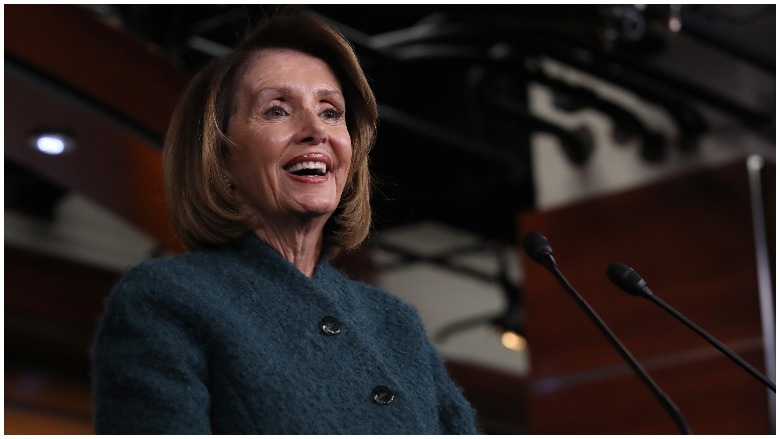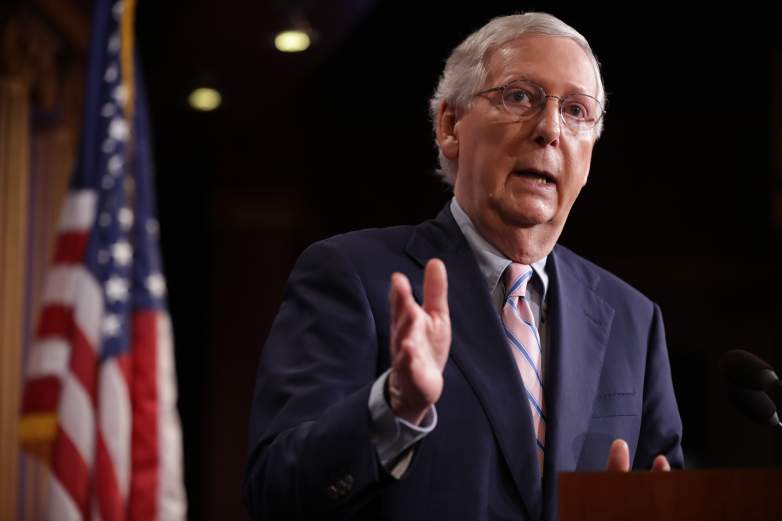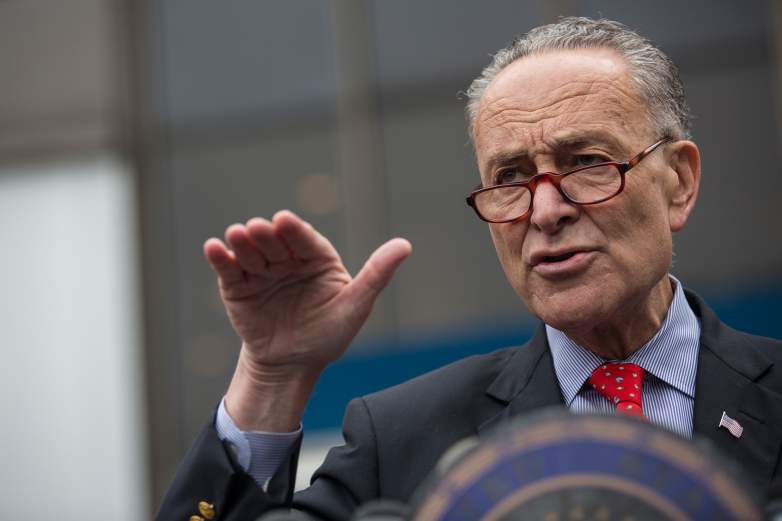
Getty U.S. House Speaker Nancy Pelosi.
Despite pushback from Senate Republicans, House Speaker Nancy Pelosi says she is “optimistic” that there will be another coronavirus relief bill in the near future.
The House Speaker expressed her positive outlook on Wednesday, October 21, during an interview on MSNBC. Pelosi told MSNBC’s Andrea Mitchell that legislators are moving to “get something done for the American people as soon as possible,” as stimulus talks have gripped Capitol Hill for months.
“I’m optimistic there will be a bill,” Pelosi said. “It’s a question of, is it in time to pay the November rent — which is my goal — or is it going to be shortly thereafter and retroactive?”
The House Speaker called on President Donald Trump to work to “convince people in his own party,” referencing Senate Majority Leader Mitch McConnell’s recent efforts to pass a smaller, targeted relief plan instead of a broad-based package.
“It’s up to the president to convince people in his own party,” Pelosi told Mitchell. “But you have to also remember how hard that it is.
“Some of them really don’t want to spend any more money to crush the virus,” she continued. “To make our schools safe, to honor our heroes, to put money in the pockets of the American people that is so needed.”
The stalemate continues as negotiators remain stuck on the overall price tag for the next relief bill.
Pelosi and Treasury Secretary Steven Mnuchin have been discussing a package in the range of $1.8 trillion to $2.2 trillion, including extended unemployment benefits and another round of stimulus checks, The Washington Post reported. Meanwhile, McConnell — who criticized Democrats of using an “all-or-nothing approach” — has expressed he cannot sell the administration’s $1.8 trillion proposal to his members, according to CNN.
Here’s what you need to know:
Pelosi & Mnuchin Are Closer to Putting ‘Pen to Paper’
Pelosi and the Mnuchin are moving toward reaching a deal, according to Pelosi’s spokesman Drew Hammill.
The two spoke on Wednesday, October 21, for roughly 45 minutes to continue to iron out their differences, Hammill tweeted. He indicated progress, noting that “legislative language” still needs to be exchanged.
“Today’s conversation brings us closer to being able to put pen to paper to write legislation,” Pelosi’s spokesman wrote. “With the exchange of legislative language, we are better prepared to reach compromise on several priorities.”
Pelosi and Mnuchin progressed on compromising on “health priorities,” including language for a national strategic testing and contact tracing plan, Hammill said. School safety measures, on the other hand, remain an obstacle, he added.
The pair will meet again on Thursday, October 22, to try to resolve any lingering “open questions,” Hammill stated.
McConnell Advised the White House to Not Make a Deal With Pelosi Until After Election Day

GettySenate Majority Leader Mitch McConnell.
McConnell told Republican Senators on Tuesday, October 20, that he advised the White House to avoid reaching a deal until after the November election, according to The New York Times. He cautioned against passing legislation that “most in the party cannot accept,” the newspaper added.
Republicans “fear that a vote on any large bipartisan stimulus would force colleagues who are up for re-election into a difficult choice of defying the president or alienating their fiscally conservative base by embracing the big-spending bill he has demanded,” The New York Times wrote.
The newspaper noted that Republican senators are also concerned a stimulus vote would slow down the timetable for confirming Judge Amy Coney Barrett to the Supreme Court.
Senate Democrats Blocked Republicans’ Attempt to Pass a Smaller Relief Bill

Senate Minority Leader Charles Schumer.
Senate Democrats on Wednesday, October 21, stifled Republicans’ attempt to pass a $500 billion stimulus bill geared toward small businesses, CNBC reported.
The legislation included additional funds for the Paycheck Protection Program, which offered loans to businesses struggling to stay open during the pandemic, as well as a $300 per week supplemental unemployment insurance benefit, among other measures, the outlet continued.
The vote in the Senate was 51 to 44, CNBC said, “well short of the 60 votes that would have been needed to advance the legislation.”
READ NEXT: A Texas Woman in Her 30s Died of COVID-19 While on a Flight